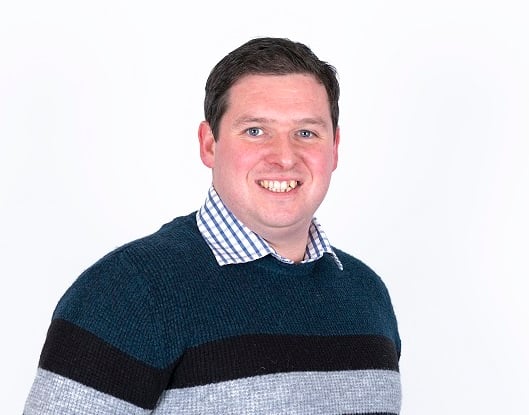Last week, a formal engagement was launched by The Crown Estate and The Crown Estate Scotland to better understand the future of carbon capture and storage (CCS) in the North Sea. Here, Geoteric Senior Geoscientist, Dr Ryan Williams reflects on how artificial intelligence can accelerate its development and the road to net zero.
In the global push to reach net zero, technologies like artificial intelligence (AI) will be vital in helping us meet the necessary goals set by countries around the world.
CCS will need to be implemented quickly and effectively for us to achieve these targets. According to a recent report from the Energy Transitions Commission, by 2050 the world will need to capture and use or store 7-10 billion tonnes of Carbon Dioxide (CO2) a year – around 18-25% of our CO2 emissions today.
Our achievements over the last 60 years have been incredible in terms of subsurface understanding. But as times change and challenges evolve, the benefits of AI, such as increased accuracy and reduced time, will become crucial as we accelerate our support of the energy transition.Overcoming challengesWhen considering how we can store CO2, geological structures are an obvious choice. Proven examples in the Leman gas field and Bunter reservoir in the Southern UK North Sea show that nature has already perfected working models that do not require re-engineering.
With limited information available on the fields less targeted by hydrocarbon exploration, we need a new approach to identify the best sites for CCS as quickly and accurately as possible - and that’s why AI is essential.
Our main challenge will be identifying enough sites to store the volume of CO2 needed to significantly reduce emissions. We know a cautious approach is being applied to one key structure of interest within the North Sea, Endurance. This is only being filled to 5% capacity to ensure trap security over time. Research shows several structures with storage potential throughout the Southern North Sea, but if this cautious approach becomes the norm, we’ll need many more sites than those commercially agreed to reach net zero.The power of AIAI software allows geoscientists to perform their roles more efficiently and effectively, by providing insights and identifying faults at a level of detail not visible to the human eye. Geoteric’s AI also interprets seismic data while remaining unaffected by external pressures such as deadlines or fatigue that can affect geoscientists interpreting manually.
Most geoscientists will spend around 90% of their time interpreting the 80-90% of features they can see and understand, leaving less time and energy to interpret more complex features. The gamechanger in AI is the ability to switch this equation, enabling more focus on the challenging elements. The software can run 24/7, enabling geoscientists to do ten times the work in a tenth of the time, focusing their efforts on fine tuning data results.
This isn’t about machines taking over; it’s about AI and humans working together to achieve the best results – allowing geoscientists like me more opportunities to do the complex analytical work we’ve trained for and providing our customers with a better return on their seismic data investment Learning lessons The benefits of Geoteric’s AI software have already been proven across the E&P lifecyle and the workflows used for hydrocarbon exploration are very similar to that of CCS site appraisal.
They both require a detailed understanding of the subsurface, including a full analysis from base aquifer to seabed. However, far more interpretation is needed for CCS and it’s often required within a similar time frame, typically weeks. This is simply unachievable through traditional workflows, and we’re seeing AI increasingly adopted across industry to help us solve these new challenges.
An example of this is a project I was recently involved in to assess the suitability of a bunter mound in the Southern UK North Sea as a possible CCS location. Using Geoteric’s suite of AI tools, I evaluated the structure and its potential as a future CCS site within two weeks, a significant reduction to the months it would take using traditional interpretation methods. Due to this success, I’m pleased to see the results are now part of an active CCS license round in the UK.AI is the futureIt’s clear that AI technology will be vital to the growth of the global CCS sector. If we want to achieve our energy transition goals by 2050, we need to find ways of doing what we do rapidly. At present, I don’t see an effective method to achieving net zero that doesn’t involve AI.
Working on a CCS project? We can help - for more information click here, or get in touch with us here.

